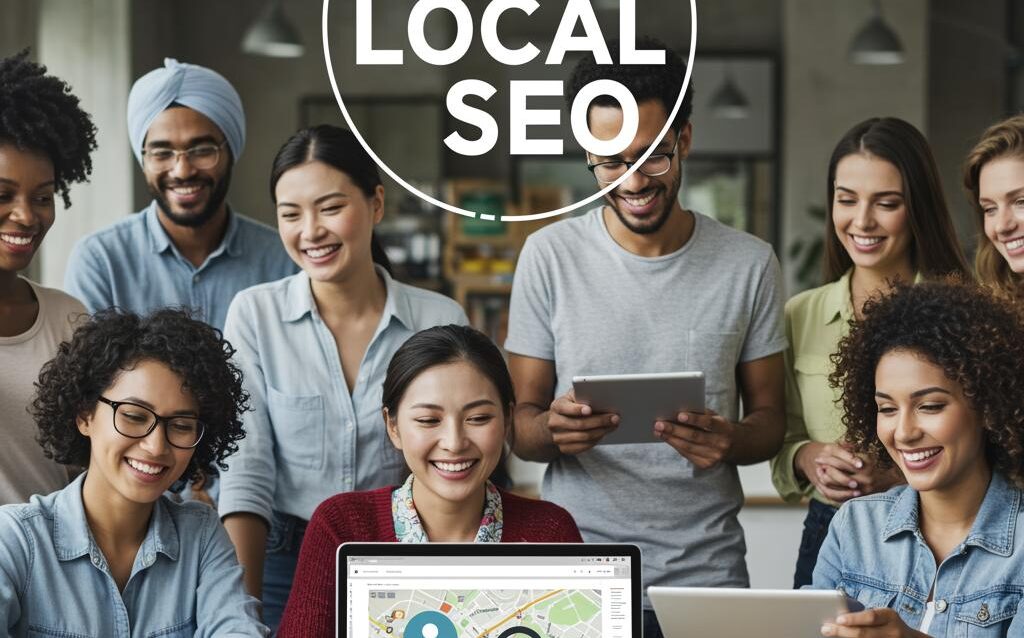Local SEO: Why It's Crucial for Small Business Success
The Undeniable Importance of Local SEO for Small Businesses
In today’s digital age, having a strong online presence is no longer optional for small businesses – it’s essential for survival. While traditional SEO focuses on ranking for broad keywords nationally or globally, local SEO hones in on attracting customers in your immediate geographic area. This targeted approach can be the difference between thriving and simply surviving, especially for businesses that rely on foot traffic or serving a specific local community.
Understanding Local SEO: What It Is and Why It Matters
Local SEO is the practice of optimizing your online presence to attract more business from relevant local searches. Think about it: when someone searches for “pizza near me” or “best plumber in [your city]”, they are actively seeking a local business to fulfill their need. Local SEO ensures that your business appears prominently in those search results.
Why Local SEO is Crucial for Small Businesses:
- Increased Visibility: Helps your business appear in local search results, maps, and directories.
- Targeted Traffic: Attracts customers who are actively looking for your products or services in your area.
- Higher Conversion Rates: Local searchers are often ready to buy, leading to higher conversion rates.
- Cost-Effective Marketing: Local SEO is often more affordable than traditional advertising methods.
- Competitive Advantage: Helps you stand out from competitors who haven’t invested in local SEO.
Key Elements of a Successful Local SEO Strategy
Building a robust local SEO strategy involves several key components working together. Here are some essential elements to focus on:
1. Google My Business (GMB) Optimization:
Your Google My Business profile is the cornerstone of your local SEO efforts. It’s essentially your online business card on Google. Treat it with care and keep it updated!
- Claim and Verify Your Listing: Ensure you own and have verified your GMB profile.
- Complete All Sections: Fill out every section of your profile accurately and completely, including your business name, address, phone number (NAP), website, business hours, categories, and attributes.
- High-Quality Photos and Videos: Add visually appealing photos and videos of your business, products, and services.
- Encourage and Respond to Reviews: Actively solicit reviews from satisfied customers and respond to all reviews, both positive and negative, promptly and professionally.
- Use Google Posts: Regularly create and publish Google Posts to share updates, promotions, events, and news about your business.
2. Local Citations: Building Your Online Presence
Local citations are mentions of your business name, address, and phone number (NAP) on other websites. These citations help Google verify your business’s information and improve your local search ranking.
- Identify Relevant Directories: Find and list your business in reputable online directories such as Yelp, Yellow Pages, Better Business Bureau, and industry-specific directories.
- Ensure NAP Consistency: Maintain consistent NAP information across all citations. Inconsistencies can confuse search engines and negatively impact your ranking.
- Monitor and Update Citations: Regularly check your citations for accuracy and update any outdated information.
3. On-Page Optimization for Local Search:
Optimizing your website for local search is crucial for attracting local customers. This involves incorporating local keywords and signals into your website’s content and structure.
- Local Keyword Research: Identify the keywords that your target customers are using to search for your products or services in your area.
- Optimize Page Titles and Meta Descriptions: Include relevant local keywords in your page titles and meta descriptions to improve click-through rates from search results.
- Use Local Keywords in Content: Naturally incorporate local keywords into your website’s content, including your homepage, service pages, and blog posts.
- Add Location Pages: Create dedicated location pages for each of your business locations, including detailed information about the location, hours, directions, and contact information.
- Schema Markup: Implement schema markup to provide search engines with more information about your business, such as your name, address, phone number, and business hours.
4. Local Link Building: Earning Authority and Trust
Earning backlinks from other local websites can significantly boost your local SEO ranking. These backlinks signal to search engines that your website is a reputable and trustworthy source of information within your local community.
- Participate in Local Events: Sponsor local events or participate in community initiatives to build relationships and earn backlinks from event websites and local news outlets.
- Partner with Local Businesses: Collaborate with other local businesses to cross-promote each other’s products or services and earn backlinks from their websites.
- Create Local Content: Develop content that is relevant to your local community, such as blog posts about local events, attractions, or news stories.
- Guest Blogging: Contribute guest posts to other local websites or blogs to reach a wider audience and earn backlinks.
Measuring Your Local SEO Success
It’s crucial to track your local SEO performance to understand what’s working and what needs improvement. Here are some key metrics to monitor:
- Google My Business Insights: Track your GMB profile’s performance, including the number of views, clicks, and phone calls.
- Website Traffic: Monitor your website’s traffic from local search results.
- Keyword Rankings: Track your website’s ranking for relevant local keywords.
- Conversion Rates: Measure the number of leads, sales, or appointments generated from local search traffic.
- Customer Reviews: Monitor your online reviews on Google, Yelp, and other platforms.
Conclusion: Invest in Your Local Community, Invest in Your Business
Local SEO is not just a marketing strategy; it’s an investment in your local community and the future of your small business. By optimizing your online presence for local search, you can attract more customers, increase your revenue, and build a stronger brand within your local area. Don’t underestimate the power of connecting with your local audience – it can be the key to long-term success. So, start implementing these strategies today and watch your business thrive!

